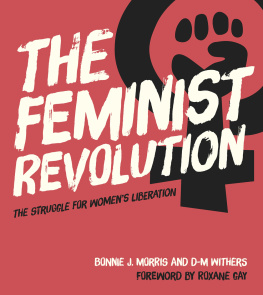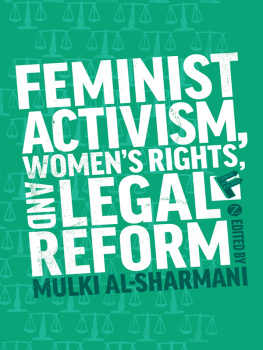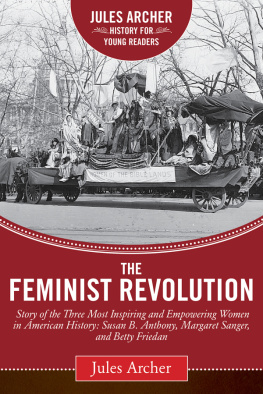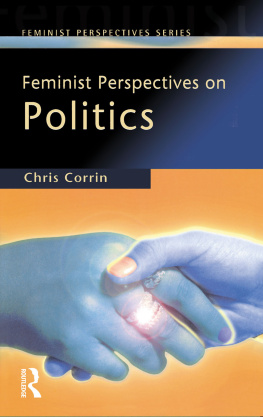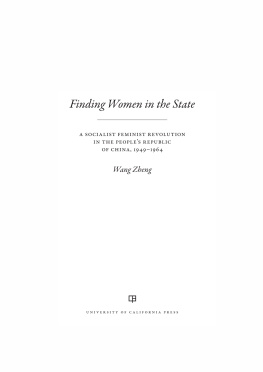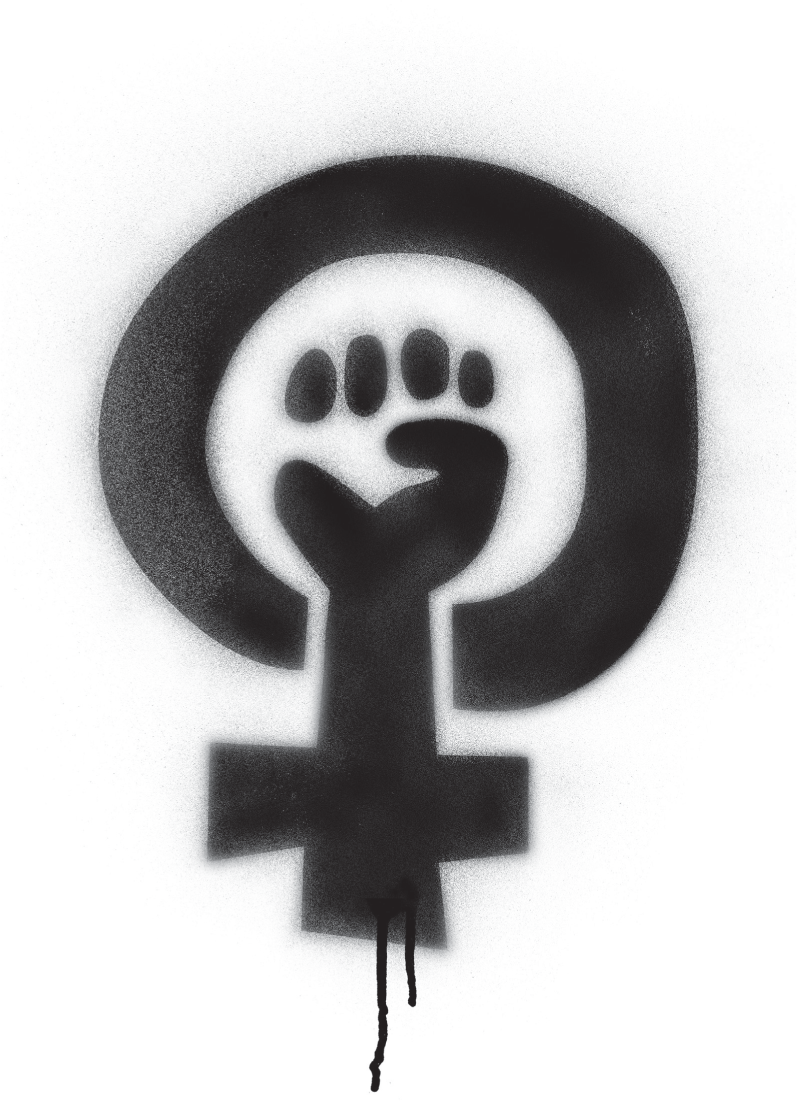


Bonnie J. Morris
To Beth Stevens Caldwell, a feminist fighter for womens health, survival, and justice; and to many colleagues and students in the Womens and Gender Studies Program of both Georgetown University and George Washington University, whose love sustained me as I wrote.
D-M Withers
My contribution to this project is made with sincere gratitude to those who struggled to realize feminist worlds in the past, and continue to do so in the unfolding historical now and in times to come.
First published in Great Britain in 2018 by Virago Press, by arrangement with Elephant Book Company Limited, Southbank House, SB.114, Black Prince Road London, SE1 7SJ, United Kingdom.
Copyright 2018 by Elephant Book Company Limited
All rights reserved.
No part of this publication may be reproduced, stored in a retrieval system, or transmitted, in any form or by any means, without the prior permission in writing of the publisher, nor be otherwise circulated in any form of binding or cover other than that in which it is published and without a similar condition including this condition being imposed on the subsequent purchaser.
A CIP catalogue record for this book
is available from the British Library.
ISBN 978-0-349-01118-9
Created by Elephant Book Company
Editorial Director, Elephant Book Company: Will Steeds
Managing Editor and Researcher: Joanna de Vries
Book Design: Paul Palmer-Edwards, GradeDesign.com
Virago Press
An imprint of
Little, Brown Book Group
Carmelite House
50 Victoria Embankment
London EC4Y 0DZ
An Hachette UK Company
www.hachette.co.uk
www.virago.co.uk
Contents
8 If I cant dance...
I dont want to be a part of your revolution
It has been more than forty years since the rise of feminisms second wave, and yet I often find myself dismayed when I recognize that the issues women are facing in contemporary society are much the same as they were during the feminist revolution.
Many women around the world do not have unfettered, affordable access to birth control or legal abortion. The statistics on women and sexual violence remain appalling. Sexual harassment is more the rule than the exception. Working-class women have no affordable means of childcare. The wage gap persists: according to a 2016 study done by the Institute of Womens Policy Research, while white women in the United States earn 75.3 percent of the salaries their white male counterparts earn, and Asian women 84.5 percent, black women earn only 63.3 percent and Latina women earn 54.4 percent. Transgender women are fighting for their rightful place not only in society but also within the feminist movement. Queer women continue to fight for basic civil rights such as workplace protections.
I am regularly asked, What is feminism? A disheartening number of people are still unclear about the definition of a movement that has existed for more than a century. Some people ask this question earnestly. They are simply unclear about feminism. Others are willfully ignorantthey dont really need feminism defined. Instead, they think of themselves as provocative, asking a question to which they already have an incorrect or incomplete answer. They would rather waste time on vocabulary than thinking about the necessary and important work of feminism. They would rather waste this time than actually do the work of feminism.
There are many people who believe feminism has an image problem. Feminists are too angry. They hate men. They are humorless. On and on the caricatures go. There are people who believe we no longer need feminism, that women have come far enough and are doing just fine. That were still defining and defending feminism is the clearest reminder of how much is at stake. There is something threatening to the status quo about the idea of women achieving equity and equality. We must protect that idea, that hope, at all costs.
Though we have not come as far as second-wave feminists would have hoped, feminist activism is alive and well. Feminism is far more inclusive than it ever has been, due in large part to the foregrounding of intersectionality, a theory put forward by Kimberl Crenshaw, who notes in her article Mapping the Margins that intersectionality offers a way of mediating the tension between assertions of multiple identity and the ongoing necessity of group politics. Intersectionality allows for the reality that as women, we share a gender but also inhabit many other identities including race, class, sexuality, ability, and so much more. As women, we share a gender, but we are not equally affected by the ways of the world, and as feminists we need to acknowledge and accommodate these differences. The Internet is serving as a democratizing force for feminist activists to put their work into the world, in ways great and small. For every effort made to impede womens progress, there are countless feminists holding the line and resisting, voices raised.
Organizations like Black Lives Matter are fighting to bring attention to police brutality and institutionalized racism within the judicial system. Weve seen Hillary Clinton become the first woman to receive a major-party nomination for president of the United States, and weve seen her win the popular vote. In the wake of Donald Trumps election, hundreds of thousands of women and men marched in hundreds of cities around the world in protest of his presidency and to take a stand for womens rights.
This is the reality of feminismthe fight is ongoing, and though it may seem slow, progress is always being made because feminists, from all walks of life, rise to the occasion time and again.
In this book, you will find some of the postwar feminist history that made todays feminism possible and images that capture this vibrant movement. As in the 1960s, we are at a watershed moment of cultural change for women. As we look forward, we must also look back.
Roxane Gay

This famous womens liberation poster was produced in 1974 by the Red Womens Workshop and is entitled Protest. It displays several images of objectification of womena subject that became a rallying cause of the womens movements.
This book is intended to be a celebration of the political, strategic, and cultural diversity of the womens liberation movement, as well as its creativity. We have sought to give voice to as many grassroots activists as possible, both through their own words and in the exploration of some of the lesser-known groups and activities that helped to shape and change womens lives. We have endeavored to showcase as many facets of feminism during the period of the early 1960s to the 1980s as we can in the scope of this project. The narrative of this book is told from a primarily Anglo-American, Western perspective. Given the enormous diversity of feminist movements around the world, we cannot claim to have covered the broad spectrum and nuances of the global womens movement within these pages. We have, however, attempted to place these movements in a more international, particularly European, context where possible, exploring the resonances of womens liberation as it moved across borders.
Next page
